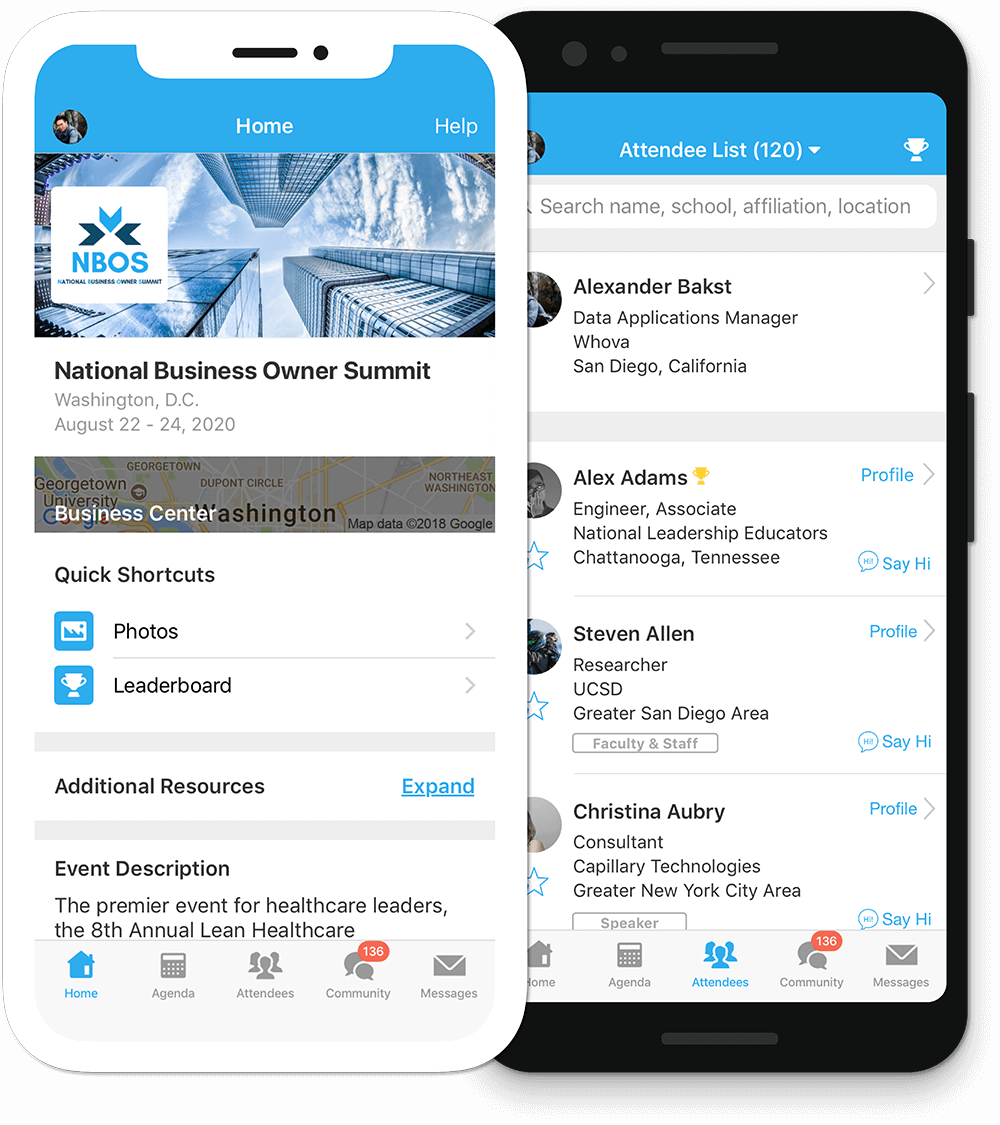Agenda overview:

Full agenda can be downloaded from here
An interactive version with presentation abstracts can be accessed from here
A Whova mobile app is also available. Instruction to access can be found here
Get our official event app,

Get the most out of the app and have a more productive experience!
1
NAVIGATE the event agenda and logistics, even without Wi-Fi or data. Access useful information like ridesharing and local attractions through the Community Board
2
NETWORK effectively. Plan whom to meet by exploring attendee profiles and sending out messages
3
PARTICIPATE in event activities through session likes, comments, ratings, live polling, tweeting, and more
For Blackberry or Windows Phone, Click here
For feature details, visit Whova